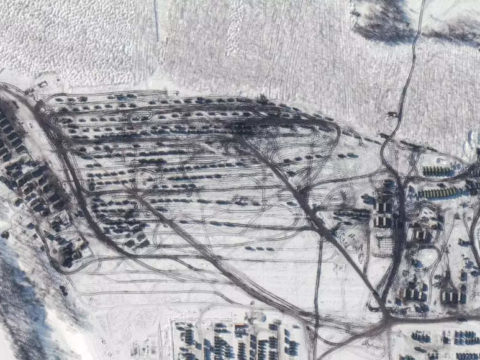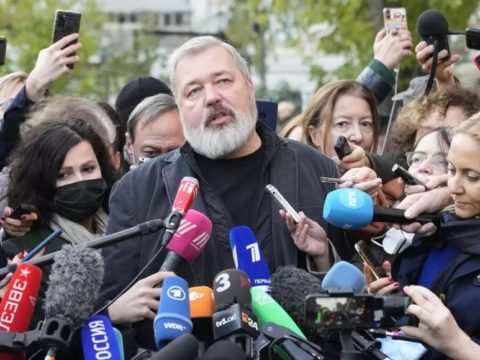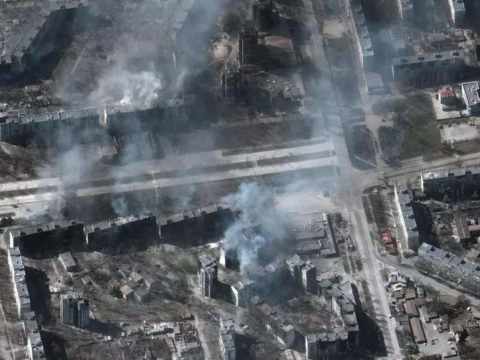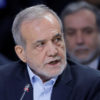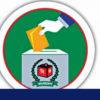
MUNICH: Germany put on a show of colour on Wednesday in defiance of UEFA’s refusal to light Munich’s Euro 2020 stadium in rainbow hues, as a political row over Hungary’s anti-LGBTQ law escalated.
As tensions soared on and off the pitch, EU leaders and Hungary traded barbs over the new law banning LGBTQ educational content for children, with EU chief slamming it as a disgrace.
Munich city authorities had planned to light the Allianz stadium up in rainbow colours during Germany’s match against Hungary to “send a visible sign of solidarity” with Hungary’s LGBTQ community.
But UEFA refused the request and on Wednesday again doubled down on its stance.
UEFA president Aleksander Ceferin said his organisation could not give in to “populist” demands from politicians but Germany said the football body sent the “wrong message”.
EU chief Ursula von der Leyen slammed as a disgrace the law passed by Viktor Orban’s government banning the “promotion” of homosexuality to minors, prompting an immediate slap down from Budapest against her comments as “a shame”.
Just minutes before kick-off at Munich’s Allianz Arena, a fan wearing a Germany shirt and waving a large rainbow flag evaded security to invade the pitch, running in front of the lined-up teams before being tackled by stewards and led away.
When the doors opened earlier to the stadium, German activists wearing vests emblazoned with the logo “rainbow to go” were handing out rainbow flags to fans.
German fan Michael, 51, told AFP he would have liked to see the stadium lit up. “I don’t see it as political and I think that would have been a great signal,” he said.
But Hungary fan Csongor, 39, said the rainbow had “nothing to do with football … We feel that this is a campaign against Hungary, against the Hungarian national team, against the Hungarian government.”
Orban has been at loggerheads with many Western EU nations over his stance on issues from immigration to press freedom.
Hungary has also recently refused to sign up to joint EU foreign policy statements on Israel and Hong Kong, sparking frustration within the bloc.
Fifteen of the EU’s member states have signed up to voice their “grave concern” at the LGBTQ law that Budapest argues will protect children.
At government question time in parliament, chancellor Angela Merkel added to critical voices including from France, saying she considered the law to be “wrong and incompatible with my understanding of politics”.
But UEFA argued that taking those views to the pitch by allowing the stadium display would be a mistake because it was “political”.
It added a rainbow to its logo and in a statement said it was “proud to wear the colours of the rainbow” but underlined its refusal of Munich’s request.
“UEFA cannot be used as a tool by politicians,” UEFA’s Ceferin told Germany’s Die Welt newspaper. “We don’t want to be used in populist actions.”
Budapest praised UEFA for taking a stance against “provocation”, with stadia across Hungary preparing to light up in national colours in a tit-for-tat display during the Euro 2020 match.
In a show of defiance, Munich put up six huge rainbow-coloured flags at its town hall and illuminated a huge wind turbine close to the stadium, as well as the city’s 291-metre (955-foot) Olympic Tower.
Other arenas across Germany also put on rainbow light displays, including Berlin’s iconic Olympic Stadium, as well as Bundesliga venues in Cologne, Frankfurt and Wolfsburg.
German newspapers, such as the Sueddeutsche Zeitung, displayed rainbows on their front pages, while Bavarian industrial giants such as Siemens and BMW also decked themselves in rainbow colours on Twitter.
At the stadium, German fan Madeleine, 26, said she had replaced one of the flags on her headband with a rainbow-coloured one. “Germany must send a message – this is the best chance to do so,” she told AFP.
“They may not be able to light the arena but the fans are lighting up in its place.”
As tensions soared on and off the pitch, EU leaders and Hungary traded barbs over the new law banning LGBTQ educational content for children, with EU chief slamming it as a disgrace.
Munich city authorities had planned to light the Allianz stadium up in rainbow colours during Germany’s match against Hungary to “send a visible sign of solidarity” with Hungary’s LGBTQ community.
But UEFA refused the request and on Wednesday again doubled down on its stance.
UEFA president Aleksander Ceferin said his organisation could not give in to “populist” demands from politicians but Germany said the football body sent the “wrong message”.
EU chief Ursula von der Leyen slammed as a disgrace the law passed by Viktor Orban’s government banning the “promotion” of homosexuality to minors, prompting an immediate slap down from Budapest against her comments as “a shame”.
Just minutes before kick-off at Munich’s Allianz Arena, a fan wearing a Germany shirt and waving a large rainbow flag evaded security to invade the pitch, running in front of the lined-up teams before being tackled by stewards and led away.
When the doors opened earlier to the stadium, German activists wearing vests emblazoned with the logo “rainbow to go” were handing out rainbow flags to fans.
German fan Michael, 51, told AFP he would have liked to see the stadium lit up. “I don’t see it as political and I think that would have been a great signal,” he said.
But Hungary fan Csongor, 39, said the rainbow had “nothing to do with football … We feel that this is a campaign against Hungary, against the Hungarian national team, against the Hungarian government.”
Orban has been at loggerheads with many Western EU nations over his stance on issues from immigration to press freedom.
Hungary has also recently refused to sign up to joint EU foreign policy statements on Israel and Hong Kong, sparking frustration within the bloc.
Fifteen of the EU’s member states have signed up to voice their “grave concern” at the LGBTQ law that Budapest argues will protect children.
At government question time in parliament, chancellor Angela Merkel added to critical voices including from France, saying she considered the law to be “wrong and incompatible with my understanding of politics”.
But UEFA argued that taking those views to the pitch by allowing the stadium display would be a mistake because it was “political”.
It added a rainbow to its logo and in a statement said it was “proud to wear the colours of the rainbow” but underlined its refusal of Munich’s request.
“UEFA cannot be used as a tool by politicians,” UEFA’s Ceferin told Germany’s Die Welt newspaper. “We don’t want to be used in populist actions.”
Budapest praised UEFA for taking a stance against “provocation”, with stadia across Hungary preparing to light up in national colours in a tit-for-tat display during the Euro 2020 match.
In a show of defiance, Munich put up six huge rainbow-coloured flags at its town hall and illuminated a huge wind turbine close to the stadium, as well as the city’s 291-metre (955-foot) Olympic Tower.
Other arenas across Germany also put on rainbow light displays, including Berlin’s iconic Olympic Stadium, as well as Bundesliga venues in Cologne, Frankfurt and Wolfsburg.
German newspapers, such as the Sueddeutsche Zeitung, displayed rainbows on their front pages, while Bavarian industrial giants such as Siemens and BMW also decked themselves in rainbow colours on Twitter.
At the stadium, German fan Madeleine, 26, said she had replaced one of the flags on her headband with a rainbow-coloured one. “Germany must send a message – this is the best chance to do so,” she told AFP.
“They may not be able to light the arena but the fans are lighting up in its place.”
Credit: Source link

